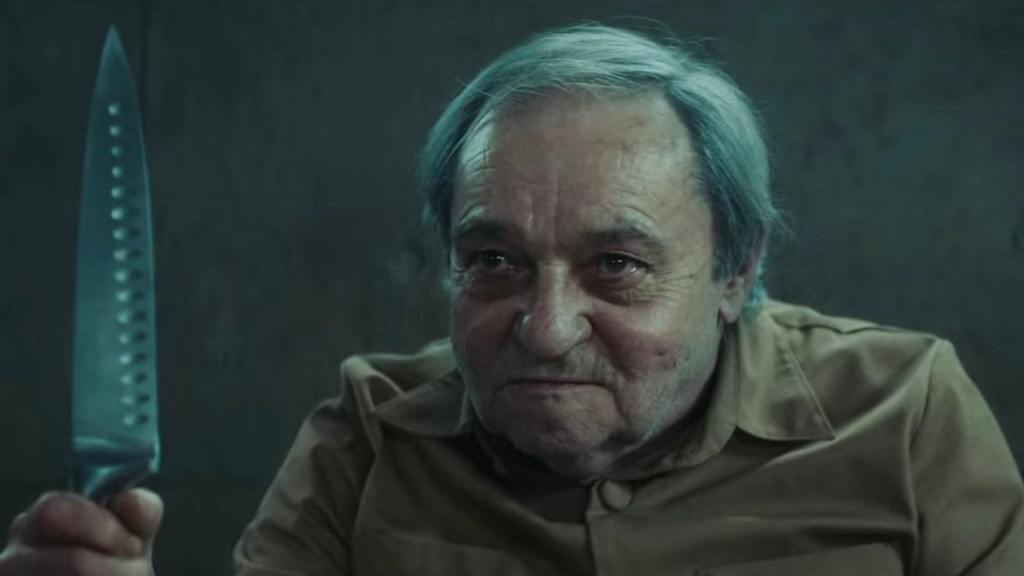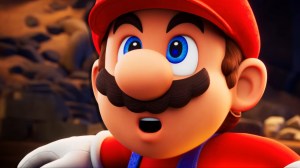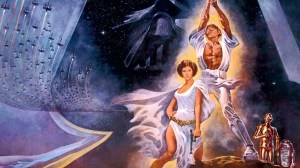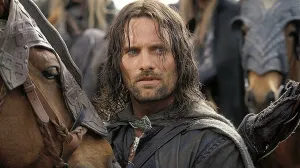The long-awaited sequel to 2020 streaming hit The Platform finally arrived on Netflix this weekend, taking horror fans back to the chilling prison experiment known simply as the Pit. This time around, the film focused on a new set of characters in the prison, seemingly disconnected from the story of Goreng, Trimagasi, Miharu, and the others from the original film. Of course, nothing in the Pit is quite as it seems, and The Platform 2 found a way to incorporate the major characters from its predecessor, linking the two films into one longer narrative. The problem, though, is that the way these characters were brought back doesn’t really make a lot of sense.
Videos by ComicBook.com
WARNING: This article contains MAJOR SPOILERS for The Platform 2! Continue reading at your own risk…
The Platform 2 feels like it takes place after the events of the first film, with a new system in place for the prisoners that is seemingly based on Goreng’s journey. There are strict rules in place to only eat the meal that you selected when you entered the Pit, and a group of “loyalists” that communicate throughout the levels to enforce the rules and keep everyone fed. New cellmates Perempuán and Zamiatin fit right into that system, but it isn’t long before of them starts encountering characters that are familiar to viewers of The Platform.
Goreng’s story appears to looms large over The Platform 2, as something of a religious cult about rules is born from a story about The Master and his descent through the levels, but it seems like that might be the only major connection to the first movie. That changes after Zamiatin dies and Perempuán is given a new partner: Trimagasi.
If you recall, Trimagasi died in The Platform. He was killed by Goreng after eating some of his flesh to try and stay alive. He returned later in that film as a hallucination that came to Goreng, which was explained by Goreng seeing visions of anyone he ate during his time in the Pit.

When Trimagasi arrives on Perempuán’s level in The Platform 2, he’s very much not a vision in her head. Other people see him and interact with him throughout the film. So given that he’s real, everything we know about the timeline between these two movies is flipped on its head. Trimagasi and Perempuán are paired up on level 72, the level that Trimagasi tells Goreng he started on when he arrived in the prison nine months prior to their meeting. So this is a prequel to The Platform, not a sequel, and the story of The Master isn’t about Goreng at all.
In that context, things start to make a little more sense, until we get to the very end. Following some very confusing sequences of children playing on a pyramid, one of the kids is selected to be sent to level 333 by Miharu, who was a staple character in the first film. Things continue to get stranger, as Perempuán saves that child from level 333 and allows them to ascend to the top, just as Goreng did at the end of the first movie. This leaves her at the bottom of the Pit with a group of people near-death and she starts seeing visions of her dead cellmates.
Perempuán even sees Goreng in a vision multiple times, which is where the story brings the most questions to the forefront. During the credits, after Perempuán stays in the pit to seemingly accept her fate, we see the final scene from the end of The Platform, where Goreng sends the little girl back up through the levels. The same scene plays out, where he sees Trimagasi and his late cellmate tells him the girl “is the message.” Goreng then turns to see Perempuán, who is shocked to come face-to-face with him, as if she already knows him. They embrace as the movie comes to an end.
This doesn’t seem like a vision one of them is having about a dead person in their life, as they both are equally shocked to find one another at the bottom of the Pit. Both seem as though they could be having the vision of the other, and Perempuán doesn’t look like someone who has been starving and dying at the bottom of the Pit for a whole year.
Does the bottom of the Pit just exist outside of time and space? Perhaps it’s some sort of afterlife? All of these characters are coming together and seeing visions of one another in ways that don’t add up, even within the wonky rules of The Platform 2. There’s almost certainly a meaning behind it all, as everything in these films feels very intentional, but that meaning might be a little too abstract for audiences to give it much thought.








